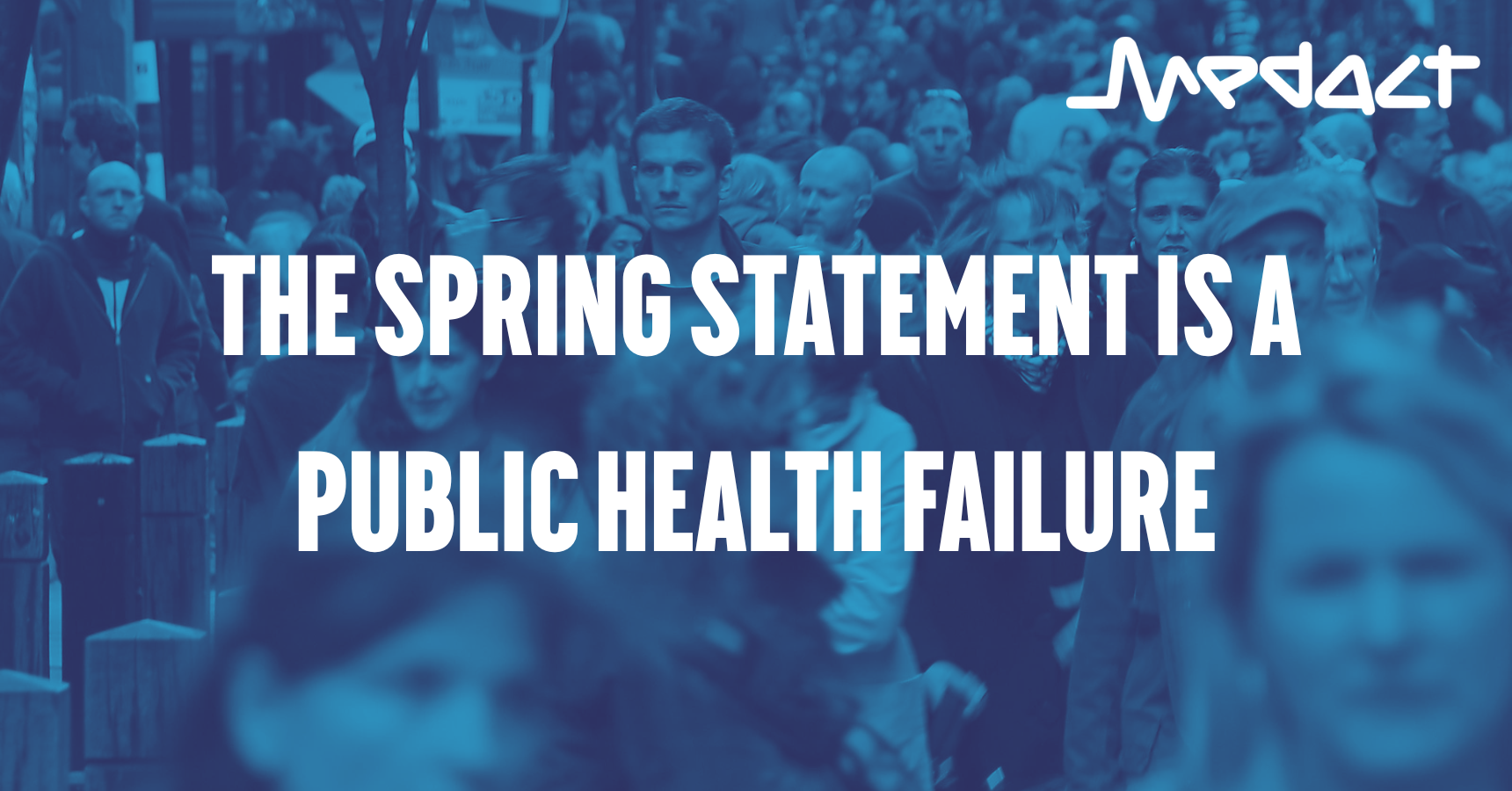
On the 26th of March 2025, the Chancellor announced the spring statement. It delivered a bleak message: the government is choosing to cut vital support for disabled people and public health more broadly, in order to ‘meet fiscal targets’. Of the £8.4 billion in spending cuts announced, over half come from reductions to disability and health benefits. Economists have warned that the true scale of the cuts has been downplayed, with the impact on ill and disabled people likely far greater than the figures suggest.
The cuts are a response to the forecasts from the Office for Budget Responsibility (OBR), which predicted that by 2029/30, the government would fall £4.1bn short of meeting its day-to-day spending needs. To avoid breaching its own self-imposed spending limits, the Chancellor cut £3.6bn from departmental budgets and £4.8bn from welfare spending. Rather than exploring fairer alternatives like taxing wealth or high incomes, or even waiting until the Autumn Budget to respond, the government rushed to act. And in doing so, placed the burden squarely on those already struggling most: disabled people, people in poverty, and those living with long-term health conditions.
Meanwhile, the government has increased defence spending by £2.2bn. This is a clear signal of where its priorities lie. In the middle of a cost-of-living crisis, care, social security, and health are being deliberately deprioritised. In the case of health, it’s not just about underfunding; it’s about allowing our institutions to be sold off and exploited for profit, turning essential care into a commodity. At a time when services are under immense strain and health inequalities are deepening, these decisions are not just economically short-sighted – they are a public health failure.
Disability benefits are not luxuries – they are lifelines. They are essential supports in a system that already fails to provide accessible healthcare, secure housing, or fair employment. For many, they are the only means of living with dignity in a society not built for them. Removing these supports will widen inequalities, increase reliance on overstretched healthcare services, and ultimately deny people their fundamental right to health and dignity. Cutting them is not just morally indefensible – it’s economically counterproductive. These policies do not save money in the long term; they drive more people into crisis and place an unsustainable burden on the NHS and society as a whole.
These cuts reflect a deeper failure in how our economy is run. The current economic framework rewards short-term fixes over long-term investment. Responding to uncertain forecasts by slashing support now is not strategic, but rather it’s reactive, and it sets us up for deeper crises down the line. We must challenge this failed logic that treats care as a cost, and disabled people as expendable.
We’ve seen this before. Austerity has eroded public services and pushed millions into poverty and ill health. It has left communities more vulnerable and exposed to worsening health outcomes. Its consequences are not abstract – they are felt in everyday life, in the conditions people are forced to survive in. When social security is stripped away, people don’t just lose income – they lose the foundations of a healthy life: warm homes, nutritious food, access to transport, and the ability to participate in society. The result? More inequality, more pressure on the NHS, and more people denied their right to health and dignity.
Economic security is a fundamental pillar of good health. Any genuine commitment to reduce health inequalities must start with strong social safety nets. This Budget does the opposite – it accelerates the redistribution of resources away from those in greatest need and undermines any efforts to build a fairer, healthier society. We need a new approach. One rooted in care, fairness, and long-term thinking.
Disability justice is health justice. Economic justice is public health. And until our budgets reflect that, we will keep seeing the same cycles of crisis, inequality, and avoidable harm.
Across the country, people are speaking out and taking action. We are coming together to push back against these policies of austerity and abandonment. This growing movement isn’t just about resisting harmful cuts – it’s about demanding a future rooted in care, dignity, and justice. People are making their voices heard.
Disabled People Against Cuts (DPAC) are organising protests and mobilising online to highlight how the spring budget will worsen inequalities. The Welfare not Warfare campaign has also taken to the streets, calling for a shift in priorities from military spending to investment in care and social support. In the media, people are sharing their stories and challenging the government’s narrative, showing the real human cost of these decisions. Researchers and economists are analysing and showcasing the alternatives we have. And many are calling on their MPs to act. Together, we’re making it clear: these decisions won’t go unchallenged.
You can be part of that growing movement too by signing this open letter from our friends at Inclusion London.